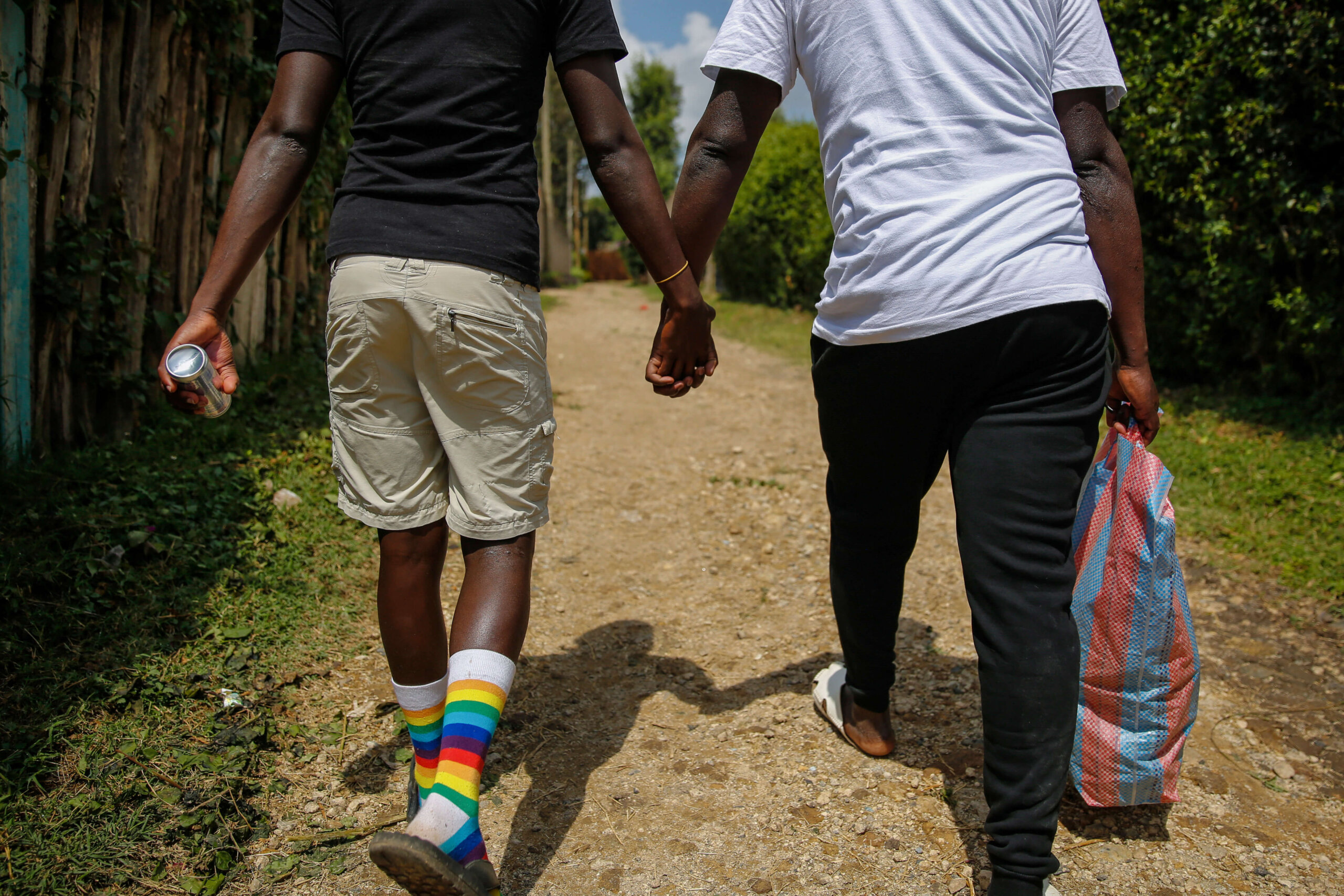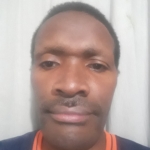John Silemba is openly gay and does not deny it. He is currently in a relationship with a man who is in his early 20s. But the 39-year-old real estate agent in Nairobi, Kenya, has had recent clashes with the law, getting arrested on several occasions because of his sexual orientation.
“I have been assaulted and insulted by the police on six occasions,” Silemba says. He describes being kicked and punched in the face by police “under false charges.” “I was once even kicked on my private parts and told how stupid I was,” he says. “It really hurts.”
Silemba is one of the many LGBTQ+ people who have faced inhumane treatment by Kenyan law enforcement because of their identities. Gay sex acts in the country remain felony crimes, punishable by a prison sentence of up to 14 years. Many LGBTQ+ Kenyans say they’ve faced ample discrimination because of their identities—from harassment at the hands of police to having their homes raided and ransacked. And this past March, a gay man died due to injuries sustained during an attack by unknown assailants that targeted LGBTQ+ people living in a refugee camp.
While many LGBTQ+ Kenyans and allies hoped that the law would change when other African nations decriminalized homosexuality in 2019, the Supreme Court of Kenya upheld its criminalization of queer sex acts. The court maintained that the country’s colonial-era anti-sodomy laws were not contrary to the 2010 constitution, which guarantees equal protection to all people, freedom of expression and freedom from discrimination.
But two years later, there’s a glimmer of hope: the government has formed a state agency to investigate human rights violations against the Kenyan LGBTQ+ community. The agency will work closely with the LGBTQ+ community and give regular and timely reports to the government about moving forward more equitably.
“We want to make sure that everyone has equal rights and protection under the law.”
The National Gay & Lesbian Human Right Commission (NGLHRC), which long operated as a non-governmental organization, will merge with other state organizations to officially become an agency. It will offer regular and timely reports to the government about how to move forward in a more equitable way for queer Kenyans. Those involved say the agency will rely heavily on relationships with the LGBTQ+ community in Kenya.
“We are not legalizing homosexuality but integrating [queer people into society] and making them feel accepted,” says Paul Kihara Kariuki, Kenya’s attorney general. “The act still remains illegal. We just want to make sure that everyone has equal rights and protection under the law.”
But many say the move to create the agency is a sign of Kenya and other African nations’ softening stance on LGBTQ+ issues. The agency’s creation also comes on the heels of the formation of the continent’s first LGBTQ+ political party outside of South Africa, set to launch its campaign in Kenya by the end of 2021.
It’s one of few LGBTQ+-specific wins the country has seen politically. The last major victory came in March 2018, when the Kenyan Appeal Court ruled that conducting forced anal exams on people accused of same-sex relations is unconstitutional and illegal. Prior to the ruling, law enforcement had been arresting men they suspected to be gay and forcing them into medical anal examinations.
“Equality includes the full and equal enjoyment of all rights and fundamental freedoms.”
“Discrimination on [the basis of] sex, gender, transgender and intersex people is illegal before the law,” says Achieng Akena, one of the lawyers who sits on the advisory board of NGLHRC and who helped win that landmark 2018 case. “When we talk of equality, it includes the full and equal enjoyment of all rights and fundamental freedoms.”
Judy Thongori, a renowned human rights lawyer, echoes Akena’s sentiments. Society needs to lend an ear to LGBTQ+ people and minorities, she says, even if they don’t personally agree with how others identify.
It’s through this baseline understanding and empathy that stories like Silemba’s will become few and far between—and it’s work the state agency could start to tackle.
The agency will begin its work the first week of September.


 Why you can trust Xtra
Why you can trust Xtra


